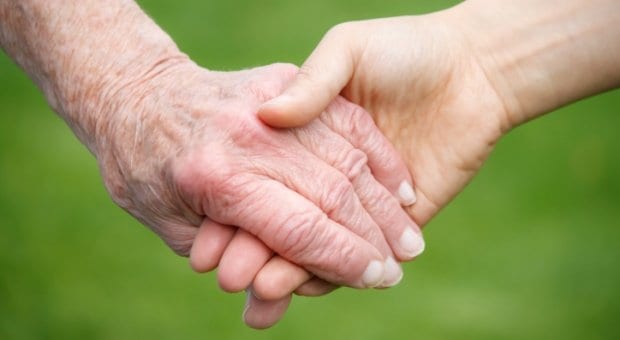I have two dads. It is not that I was raised by a gay couple. It’s because I met my gay dad, Bob, in my adult life. He taught one of my classes when I moved from Japan to study at the University of California at Berkeley. When I found out that he was also gay, I sought out help from him. I needed a gay mentor . . . badly.
At that time, after years of emotional upheaval, I was finally able to accept my own sexuality and came out to my parents and close friends. My parents were devastated by their only son’s confession, and we couldn’t actually discuss anything with cool heads. A few of my friends were supportive yet, understandably, couldn’t grasp my deeply personal struggle. I had never met openly gay adults until I met Bob. In Japan I had wanted to, and I actually spoke with some older successful (closeted) gay people to obtain guidance — politicians, professors, actors and business executives. Their advice was basically, “Do not come out publicly if you want to succeed professionally.” It was not an option for me; I wanted to be honest to myself in all aspects of my life.
Since then, Bob has generously given me mentorship at every crucial step of my gay and (non-gay) life. Coming to terms with telling my parents, coming out to my colleagues, applying to graduate schools, immigrating to Canada, dealing with a long-distance relationship, breaking up with my boyfriend of seven years, and moving on to my next relationship.
Bob is my parents’ age. He lived the history of gay movements in the US and the world. He told me about the unforgettable day of Harvey Milk’s assassination in 1978. He became the second openly gay tenured professor at Princeton in 1982. He has testified extensively in California about the economic impact of HIV-related legislative measures and unmarried couples. He lived through widespread homophobia in the 1970s, the HIV pandemic in the 1980s, Pride marches in the 1990s, and same-sex marriage in the 2000s (he and his partner of many years recently tied the knot in California after Proposition 8 had been virtually overturned).
Don’t get me wrong. I love my parents. Fortunately for me, they have become extremely supportive about my sexuality. Moreover, they have been married for 40 years. They will always be great role models and have shown me, through words and conduct, what family, relationship, acceptance, love and affection means. Nevertheless, my straight parents were not necessarily best placed to teach their gay son about, for example, sexually transmitted diseases or homophobia in the workplace.
As I go through my 20s, I feel (and many others agree) that young gays have a propensity to abhor old(er) gays no matter what. For instance, it is very common to see an upper age limit, or a filtering out of guys who are older than a certain age, on Grindr. Some gay men may presume that older folks are interested only in paying for younger guys’ bodies. It may be true to some but is certainly not the case for everyone.
Professors Christopher Hajek and Howard Giles have for many years written about intergenerational communication among gay men. They pointed out that younger gay men fear growing older in a gay culture that places an excessively high value on physical appearance. Many researchers also find more discrimination against older people in gay culture than in straight culture. Whatever the reason, it is a great shame that there is little, if any, communication between younger gays and older gays.
In the straight world, most young people can seek advice from older generations through biological family or everyday communal ties — parents, brothers and sisters, aunts and uncles, grandparents, friendly neighbours and friends’ parents. They tell you how to cope with your first love and how to respond to racial slurs at school.
There is a tremendous amount of wisdom, experience and insight among older gays about gay-specific concerns. They faced harsh discrimination when they were younger. They have fought for us and won many battles. Without them, there would not have been Pride parties or wedding cakes for any of us. Many of them are eager to share their hardships and thoughts with younger gays.
I believe that it is extremely important to recognize the existence of excessive age-based discrimination in our gay culture and to deliberately encourage intergenerational communication among gays. It requires efforts from both sides; the gay young need to be more proactive, while the older generation must approach the young as their children they never had but dreamed about. We should start talking.

 Why you can trust Xtra
Why you can trust Xtra


